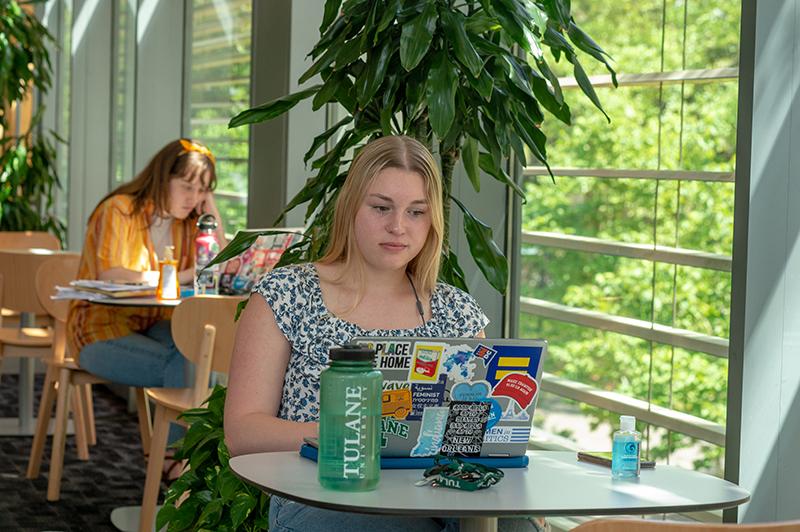Tulane transitions to online classes with great results
Tulane University’s move to online instruction began Monday, March 23, with much success, administrators said.
March 13 was the last day students attended classes on campus; classes were cancelled March 14-22 to allow faculty time to prepare their courses for online as well as give students time to move off-campus.
In preparing for the transition, Tulane’s Center for Engaged Learning and Teaching (CELT) and the Innovative Learning Center (ILC) launched an extensive program of in-person and online training sessions for faculty and students called Teach Anywhere and Learn Anywhere, which provide academic support, resources and tips for shifting learning and teaching to an online-only format.
Mike Griffith, PhD, director of ILC, said the university made the move to online-only Monday with “incredibly successful results” and that classes are “proceeding smoothly.”
He said that minor issues have popped up but the technologies “have remained accessible despite increased global demand.”
Toni Weiss, director of Tulane’s Center for Engaged Learning and Teaching, echoed Griffith by saying the number of issues are “amazingly few.”
“We just completely transformed our university and what teaching looks like, and we did it with so few hitches,” she said. “It’s astounding.”
Some of the issues the center has received so far, Weiss said, are related to WiFi connection or the audio from computers during Zoom video sessions. However, when those issues do arise a staff member from ILC or CELT is monitoring the Teach Anywhere site and email, teachanywhere@tulane.edu, every day and is ready to respond.
“We’ve divided up the days and those emails are getting answered really quickly. There’s no backlog,” Weiss said.
Additionally, ILC and CELT are offering office hours virtually every day from 10 a.m. to 3 p.m. Faculty and students can also request equipment through their Dean’s office or through the Teach Anywhere email.
Newcomb-Tulane College is also helping to manage issues that arise from students and is routing the cases through to the appropriate department to resolve, Lee Skinner, PhD, dean of Newcomb-Tulane College, said.
Skinner said the main goal is to ensure educational continuity.
“Our goal is to provide an exceptional academic experience to our students that is as close to the on-campus experience they have to come to expect as possible,” Skinner said.
To support that goal, Newcomb-Tulane College transitioned its academic support services and resources online so students can access online tutoring, supplemental instruction and success coaching. Additionally, Newcomb-Tulane College has a Virtual Learning Student Support page so students can troubleshoot their own concerns. Students can also use the Remote Student Support Form to communicate any issues they encounter.
Skinner said faculty have reported great attendance in their online class meetings and that students are happy to see their peers and professors.
“I am really impressed with our faculty and students’ determination to make online teaching and learning as excellent as our in-person classes,” she said. “They’re already building a thriving virtual community.”
Weiss said faculty “really stepped up to the plate” to committing themselves to learning how to adapt to online instruction in a small amount of time.
“It’s really heartwarming to see,” Weiss said.
Skinner noted it’s important to remember that “everyone is dealing with the challenges of this transition as well as with many other stresses and to be understanding and patient with one another as we work through the glitches that we’re bound to encounter. But ultimately, the intellectual work we do, individually and together, continues regardless of the format, and I hope everyone finds that as heartening as I do.”

